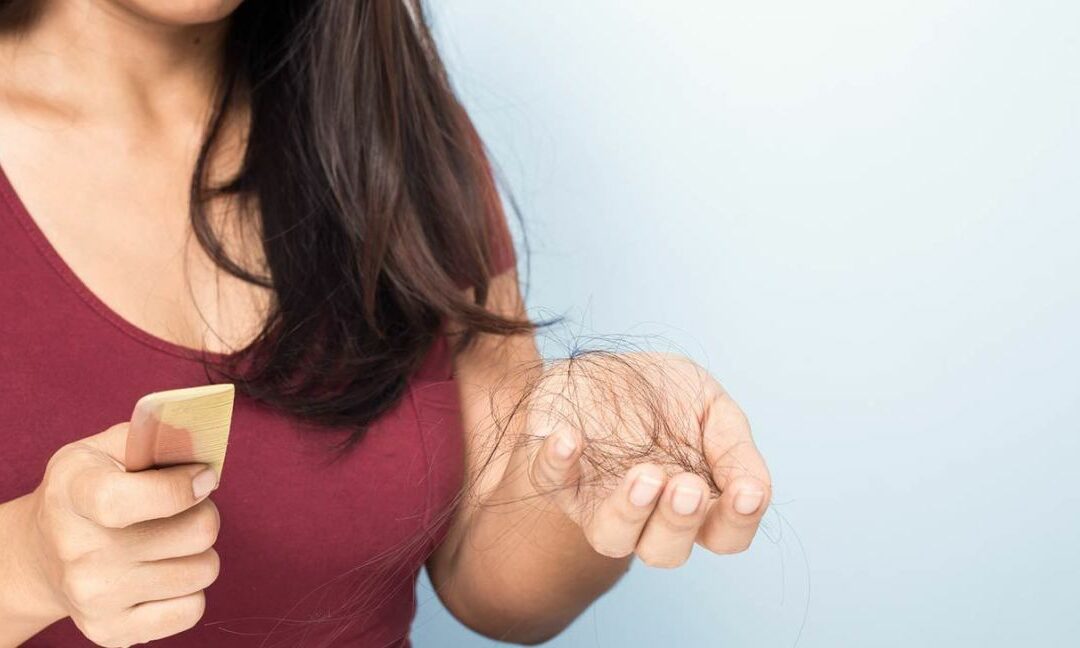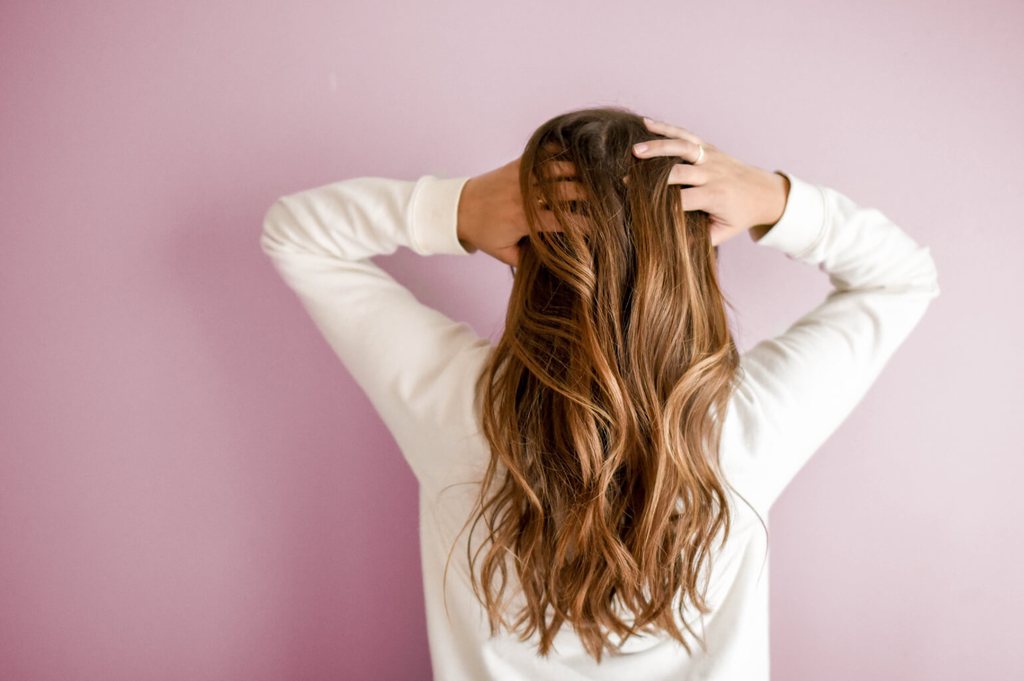WOMEN LOVE THEIR HAIR!
There are no ifs or buts when this statement is being considered. Because for women, their hair is a way of expressing themselves. They style it, take care of it and own it throughout their life. However, when menopause enters their lives, it shakes them up in various ways. Still, one of the most dreaded outcomes is menopausal hair loss.
In this blog post, we’ll cover everything related to menopausal hair loss, including the reasons behind it and how you can prevent it.
What is Menopause?
According to the medical definition, menopause is defined as the women’s final menstrual period, and the accepted confirmation of this is made retrospectively after one year of absence in menstruation.
It’s a natural process that affects all women over the globe. The average age of menopause worldwide is between 51-52 years. However, as a woman’s body faces this transition, some certain symptoms and conditions occur due to it.
Symptoms
Here are some premenopausal (around menopause) and menopausal symptoms that are bound to appear:
- Loss of concentration
- Hot flashes
- Dry and itchy skin
- Decreased libido (sexual desire)
- Night sweats
- Vaginal dryness
- Joint ache
However, cardiovascular and bone problems like osteoporosis may also arise as long-term complications.
What Causes Menopausal Hair Loss?
What really happens is that the progesterone and estrogen levels in your body start to decrease with time. Because of the reduction in the production of these hormones, many females experience menopausal hair loss as they are responsible for the speedy hair growth in women.
Moreover, as estrogen and progesterone levels fall, androgens come into play. As their levels increase, they cause the hair follicles on the head to shrink. Not only does this amplify the hair fall, but it also contributes to the facial hair that some women may develop as their menopause begins.
Symptoms That Require Prompt Medical Attention
Here a few symptoms that must be reported to a doctor as soon as possible:
- Hair loss is very sudden
- Your hair is thinning at a faster rate
- You notice an unusual pattern in your hair fall
- The scalp is itchy or red
- Your basin gets filled with hair very quickly
- Your ponytail has drastically reduced in its size
You should definitely be on the lookout for these symptoms, whether your menopause has begun or not. Such conditions require prompt medical attention no matter what your age is!
How to Reverse Menopausal Hair Loss?
Is menopausal hair loss reversible? The answer is yes!
If you are able to catch onto the symptoms on time, there are chances that you would be able to reverse the menopausal hair loss.
Let’s take a look at a few tips and tricks:
1. Take Care of Your Diet
The first and foremost thing you can do to reverse menopausal hair loss is to fix your diet. Knowingly or unknowingly, you might be missing out on the nutritious substances you need to have healthy hair.
It is essential to include protein, vitamins and minerals in your daily routine life. However, you don’t know what you’re lacking; hence, getting a full workup and getting started on some supplements would be good.
Moreover, it is essential to include certain foods containing fatty acids vital for your hair growth and maintenance. They can be; tuna, salmon, almonds, walnuts, and flaxseed oil.
2. Adopt Healthy Cosmetic Habits
Women love styling their hair. Be it straightening, perming, or dyeing their hair once in a while – it is a universal fact that women love playing with their hair.
But once you enter menopause, it is essential to adopt healthy cosmetic habits, i.e. to start applying highly potent hair masks, use hats to protect your hair from the sun, and reduce straightening or perming your hair.
3. Say Goodbye to Stress
Even young girls and women lose their hair due to stress. Therefore, if you are premenopausal or have entered your menopause, then you should do something to regulate the stress in your life.
The first and foremost thing to do is to try and eradicate the things that cause you stress. You should also start focusing on hobbies or activities that make you happy.
The reduced estrogen in your body can contribute to your stress, anxiety and other menopausal symptoms. You must try to curb them by adopting healthy habits, doing yoga, and exercising regularly.
4. Discontinue Some Medicines
There’s no doubt about the fact that allopathic medicines have side effects. And considering your age (because you’re about to or have entered menopause), you might be taking some medicines.
It is crucial to note if any of the added medicines have accelerated hair fall or are contributing to the thinning of your hair. Consult your doctor and cut down on the specific medication if it is contributing to hair damage.
5. Keep Yourself Hydrated
Water is your best friend, seriously.
Having a good intake of water keeps the toxins out of your body and supports good health. So if you want to have good hair, good skin and a good life – drink your water!
6. Try Bamboo Pillowcases
Did you know about bamboo pillowcases? If you didn’t, then you’re in luck today!
Bamboo pillowcases are softer as compared to cotton pillowcases. You can use these to protect your hair from breaking overnight due to the friction between your hair and the pillowcase. It also doesn’t allow your hair to get tangled and frizzy and, therefore, is a fantastic fabric for hair care.
Conclusion
Menopausal hair loss is an inevitable thing – it’s going to happen, really. However, this shouldn’t make you feel less beautiful about yourself, and you shouldn’t let it shake your confidence as well.
It’s a phase of your life, a little challenging – yes, but you’ll get through it as well. Look after your hair, follow our advice, and you’ll be good to go!



Recent Comments